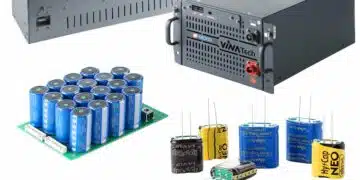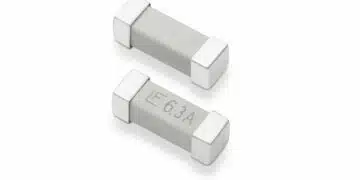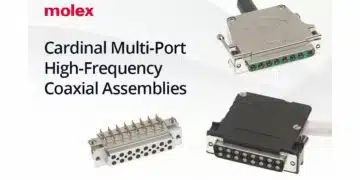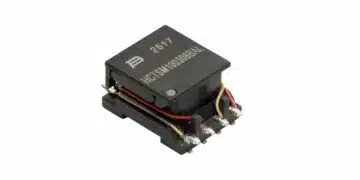Source: Würth Elektronik article and video.
Why accept performance loss due to downsizing, when it is not necessary at all?
While downsizing might be the right choice for some applications, others require larger sizes of MLCCs for keeping the required electrical performance, volumetric capacitance and DC bias behavior. Long term availability ex stock.
For some years now, the electronics industry has been experiencing an increasing shortage of electronic components. The market for ceramic capacitors (MLCCs) is particularly affected, aggravated by technological innovations that are driving up demand. Industries such as automotive, telecommunications and consumer electronics have driven the miniaturization of MLCCs. If the 0402 or even 0603 designs are still too large for developers, component manufacturers must react.
But the trend towards particularly small designs led more and more manufacturers to discontinue their medium and large ceramic capacitors. Electronics manufacturers are therefore increasingly being forced to switch to smaller sizes, which further increases the competitive pressure for small MLCCs. Downsizing might be the right choice for some applications. But if a miniaturized layout is not a priority, there is no need to compete for smallest capacitors with mobile phone manufacturers or the like.
If you have special requirements for electrical performance, available capacitance or DC bias behavior, you should even consciously choose larger MLCCs. Their properties and performance are better: To achieve the same results with downsized MLCCs, more of them need to be placed. In addition, adjusting the PCB layout and placement cause extra costs. It is a complex subject.
Most manufacturers including Würth Elektronik REDEXPERT, offers an online tool for the simulation of capacitor behavior based on real measurement data.
And Würth Elektronik provides personal advice in its featured video and examples below:
Example 1: How much capacitance do you really get?
22µF / X5R / 1206 / 20% @ 6V DC
Example 2: How much capacitance do you really get?
22µF / X7R / 1210 / 10% @ 6V DC
- Class 2 ceramics use Barium Titanate as base material
- This material is ferroelectric and this characteristic is the reason for a strong dependence on the capacitance.
- Capacitance vs. Temperature
- DC Bias – dependency of capacitance against DC voltage
- Aging Behaviour
- In addition, this material has a piezoelectric structure which can also result in microphonic effects.

































